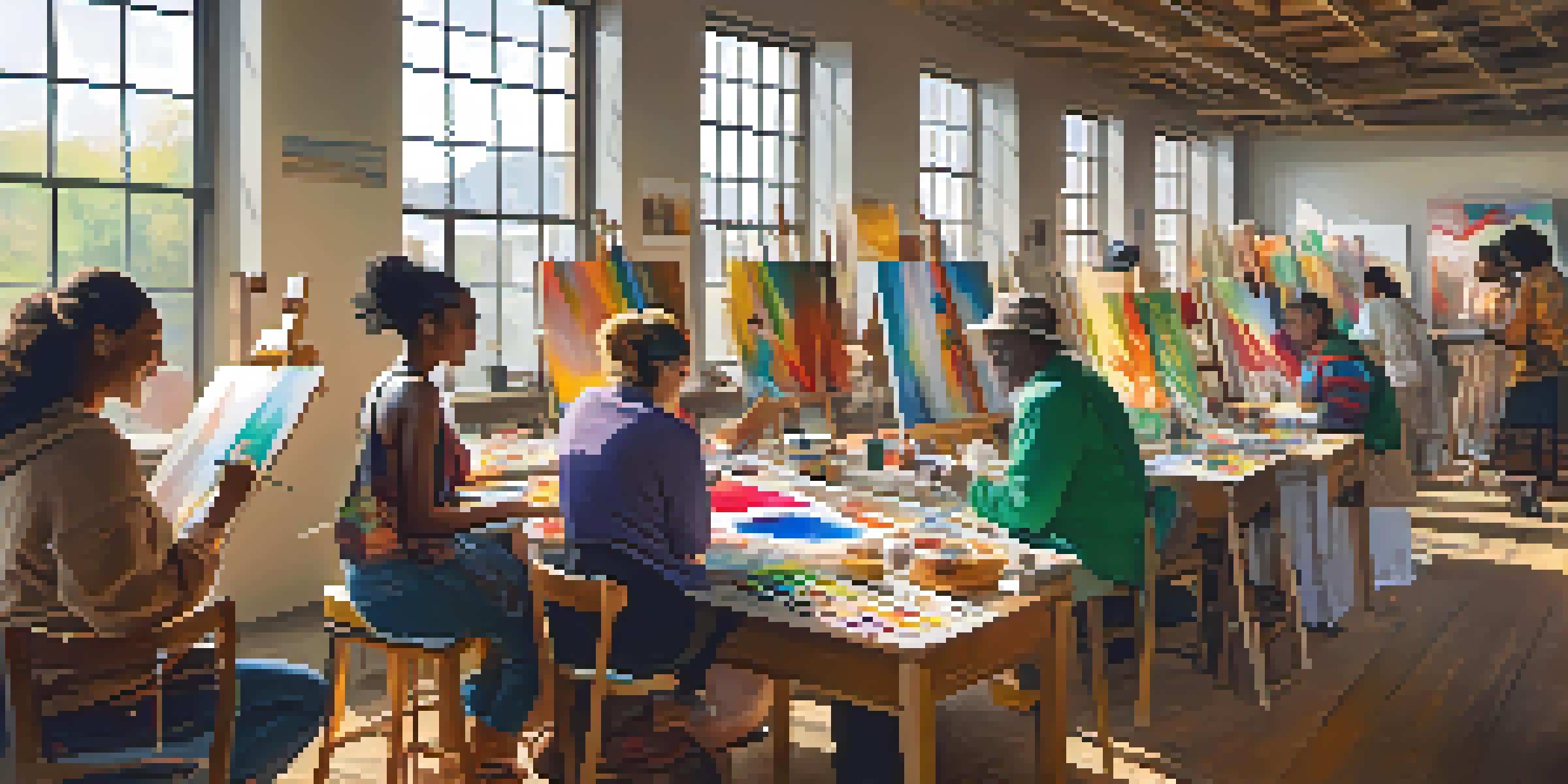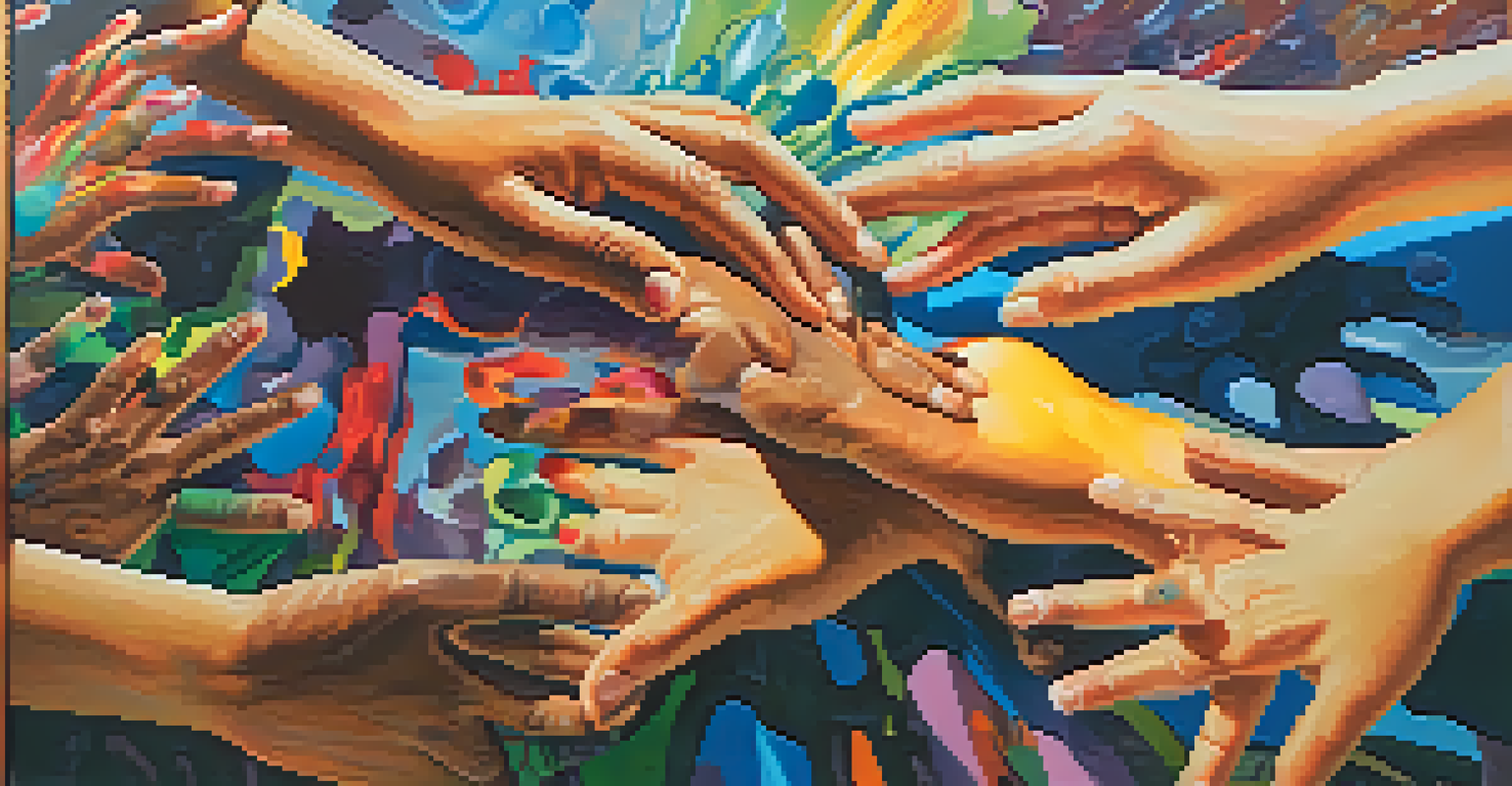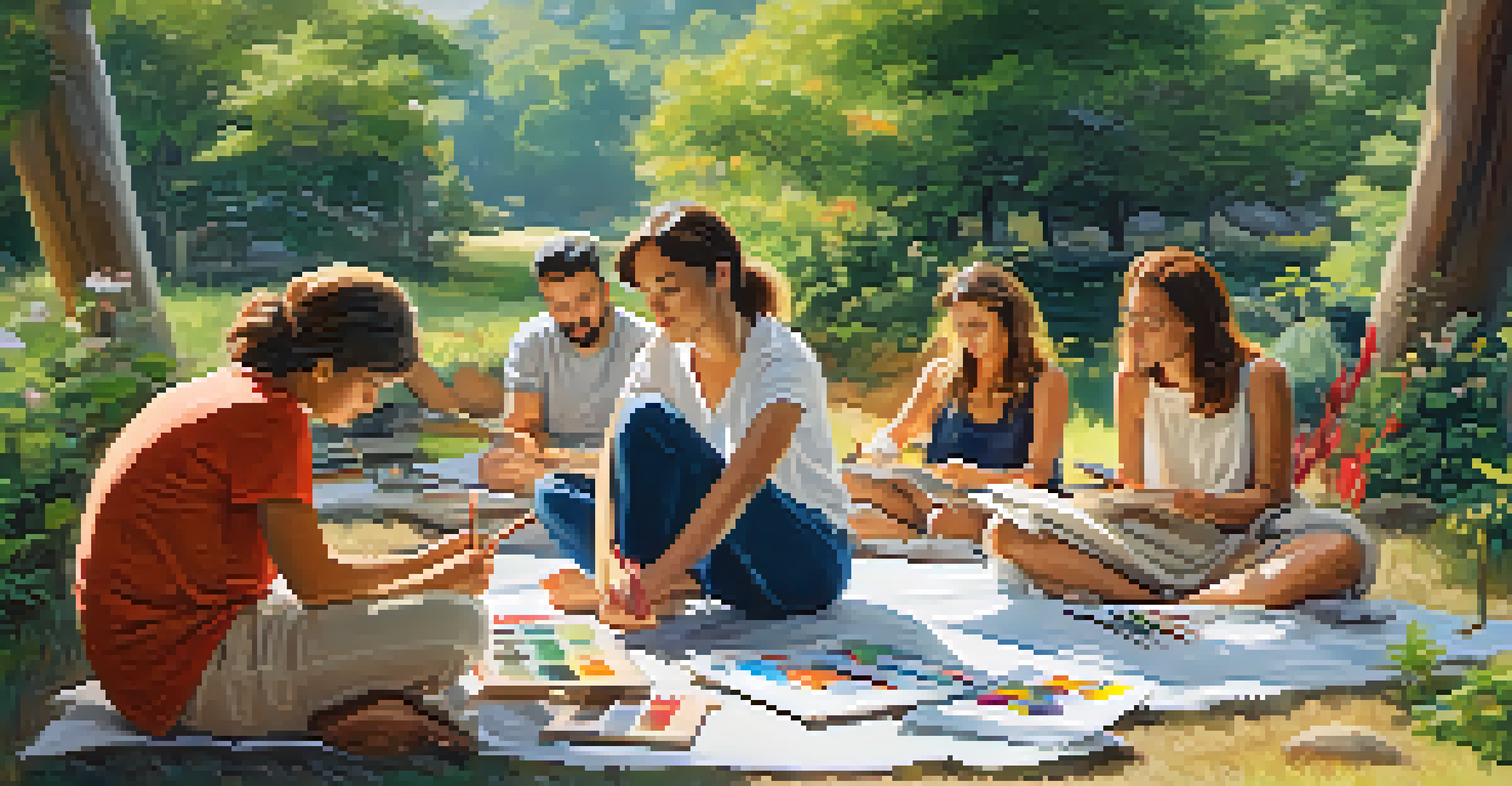Art Workshops: Building Resilience in Marginalized Groups

Understanding the Importance of Resilience in Marginalized Groups
Resilience is the ability to bounce back from challenges, and it's especially crucial for marginalized communities facing unique adversities. These groups often encounter systemic barriers that can hinder their personal and collective growth. Building resilience can empower individuals to overcome obstacles and thrive despite difficult circumstances.
Art is not freedom from discipline, but disciplined freedom.
Art plays a vital role in this process, providing a medium for self-expression and healing. Engaging in creative activities allows individuals to process their experiences, fostering emotional well-being. By participating in art workshops, marginalized individuals can discover their strengths and cultivate a sense of belonging.
Moreover, resilience isn't just about individual growth; it’s also about community. When people come together in a supportive environment, they build connections that can lead to collective empowerment. Art workshops can serve as safe spaces where shared experiences are transformed into creative outputs, reinforcing community bonds.
The Role of Art in Healing and Self-Expression
Art has long been recognized as a powerful tool for healing. For marginalized groups, it can provide an outlet for emotions that may be difficult to articulate through words. Whether it’s painting, music, or dance, the process of creating can help individuals release pent-up feelings and start their journey toward healing.

Through art, participants can explore their identities and experiences in a safe space. This exploration can foster a deeper understanding of themselves and their communities, which is crucial for personal growth. In this way, art workshops become more than just creative sessions; they turn into transformative experiences.
Resilience Empowers Marginalized Groups
Building resilience through art enables marginalized communities to overcome systemic barriers and thrive despite challenges.
Additionally, sharing art with others can create a sense of validation and acceptance. When individuals see their experiences reflected in others’ creations, it reinforces the idea that they are not alone. This sense of solidarity is vital for building resilience and can inspire participants to take further steps toward personal empowerment.
Creating Safe Spaces for Marginalized Voices
One of the key components of art workshops is the creation of safe spaces where marginalized voices can be heard. These environments encourage participants to express themselves without fear of judgment. By cultivating such spaces, workshop facilitators can foster trust and openness among participants.
The greatest danger in times of turbulence is not the turbulence; it is to act with yesterday's logic.
In these safe spaces, individuals often feel more comfortable sharing their stories and experiences. This shared vulnerability can lead to powerful moments of connection and understanding. Furthermore, these connections can help participants realize the commonalities in their struggles, strengthening community ties.
Ultimately, safe spaces in art workshops not only empower individual expression but also promote a culture of inclusivity and acceptance. By valuing each participant's voice, these workshops can help marginalized groups reclaim their narratives and assert their identities.
Building Community Through Collaborative Art Projects
Collaboration is a powerful aspect of art workshops, especially for marginalized groups. When participants work together on projects, they can pool their talents and perspectives, leading to richer artistic outcomes. This collaborative spirit fosters a sense of unity and shared purpose.
Group projects also encourage participants to learn from one another, enhancing their skills in a supportive environment. As they share ideas and techniques, they build not only their artistic abilities but also their confidence. This newfound confidence can translate into other areas of their lives, promoting resilience.
Art Fosters Healing and Connection
Creative expression in safe spaces allows individuals to process emotions, share experiences, and strengthen community bonds.
Moreover, the finished collaborative pieces often serve as symbols of the community's collective strength and creativity. Displaying these works publicly can raise awareness of the struggles faced by marginalized groups and highlight their resilience. It's a powerful reminder that art can be a catalyst for change and a tool for advocacy.
Skills Development and Personal Empowerment
Art workshops provide an excellent opportunity for skills development, which is essential for personal empowerment. Participants can learn various artistic techniques, from painting to digital art, equipping them with valuable skills for future endeavors. This learning process can boost self-esteem and encourage participants to pursue further education or career opportunities.
Additionally, mastering new skills fosters a sense of accomplishment, which is crucial for building resilience. When individuals see tangible progress in their abilities, it reinforces the belief that they can overcome challenges. This confidence can spill over into other aspects of their lives, encouraging a proactive approach to problem-solving.
Beyond technical skills, art workshops also nurture soft skills such as teamwork, communication, and critical thinking. These skills are invaluable in both personal and professional settings, helping marginalized individuals navigate various life challenges with greater ease.
Fostering Cultural Identity and Pride
Art is deeply intertwined with cultural identity, and workshops can serve as a platform for marginalized groups to celebrate their heritage. Participants can explore traditional art forms, storytelling, and cultural practices, fostering a deeper appreciation for their roots. This exploration can instill a sense of pride in their identity, which is vital for resilience.
By incorporating cultural elements into their artwork, participants can express their unique narratives and histories. This not only validates their experiences but also educates others about their cultures. Sharing these stories through art can promote understanding and respect within the wider community.
Collaboration Enhances Skills and Pride
Collaborative art projects not only boost individual confidence and skills but also celebrate cultural identity and foster a sense of belonging.
Furthermore, celebrating cultural identity through art can create a sense of belonging among participants. When individuals come together to honor their traditions, they reinforce their connections to one another. This shared pride can empower marginalized groups to advocate for their rights and promote their cultural heritage.
The Long-Term Impact of Art Workshops on Resilience
The benefits of art workshops extend far beyond the session itself. Participants often carry the skills and confidence they gain into their daily lives, leading to sustained personal growth. This long-term impact is crucial for fostering resilience in marginalized communities, as it equips individuals to face future challenges.
Moreover, the connections forged during these workshops can lead to lasting support networks. Participants may continue to collaborate or support one another long after the workshop concludes. This ongoing sense of community can provide a safety net, allowing individuals to navigate life's ups and downs with greater ease.

Ultimately, art workshops can serve as a springboard for broader societal change. By empowering marginalized individuals and communities, these workshops contribute to a more equitable society where everyone has the opportunity to thrive. The ripple effect of these positive changes can inspire future generations, fostering resilience in communities for years to come.